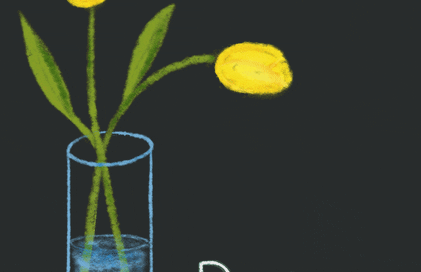After my previous newsletter and discussing it on X with a few of my followers, Kat Storr, a fellow freelance writer suggested I also cover how to manage children hearing about the news in Israel and Palestine. Like Kat, your children may be too young to really understand why you turn off a distressing news bulletin, but if they’re slightly older and have smart phones and social media, it’s more or less impossible to shield them from it completely. There’s also so much disturbing content being shared at the moment with no warnings whatsoever, it feels hard to avoid it - even if you’re trying to.
So, how should you answer difficult questions and manage the type of content your children or teens are consuming? I asked Georgina Sturmer, BACP registered Counsellor, and Bayu Prihandito, a Certified Psychology Expert and Life Coach and founder at Life Architekture for their advice and insight. If you have any tactics that you’ve found particularly useful yourself, please reply to this newsletter and I’ll share them. You can also send me a Tweet (or X – is that what we’re saying now?) @CatHufton.
CAT: What advice would you give to any parents whose children have asked them about the conflict in Israel and Palestine or have seen or heard disturbing content?
GEORGINA: “First of all, you know your children better than anyone else. There isn’t a one-size-fits-all approach to this, as different children with different sensitivities have different needs. What’s important is to engage with them. Don’t wait for them to come to you. Find out what they have heard, and how it’s made them feel. Debunk any myths or fake news if you hear them repeating stories that you don’t believe to be true. And focus on making sure that they feel safe. Look at a map together, show them where it’s happening so that they can fit it into their understanding of the world. They might have all kinds of fears that they are unable to articulate, or perhaps they might feel embarrassed to do so. Encourage them to feel that they can talk to you”.
“Context matters here too. Your child might feel like they are aware of something that no one else is talking about. Or at the other end of the spectrum, their school or your local community might feel embroiled in what’s going on. Either way, as well as hearing or witnessing about the events so far, they may also be hearing argumentative rhetoric, or they might feel compelled to join in the debate. Make sure that they are aware that it’s a complex situation for all of us to understand, and it’s ok if they can’t get their heads around it all. Adults have the same struggles too”.
BAYU: “First, if your children are asking questions or sharing concerns about these events, do not ignore their questions and dismiss them as non-important or for adults concerns only. Instead, engage in open, honest, and supportive conversations with your children. First acknowledge their emotions, provide comfort, and offer context to the images or information in an age-appropriate manner”.
CAT: What about parents who are worried about their children seeing disturbing videos on IG and TikTok? How can we warn our children about this? Many don’t come with a warning.
GEORGINA: “As parents, it’s important for us to acknowledge that social media has changed the face of terrorism and conflict. And we can be open about that with our children. It’s ok to explain to them that social media can be weaponised by people who intend to spread threatening imagery. And that misinformation and doctored photos are doing the rounds too. So, the safest thing to do is to delete apps or add controls. But it’s also important for your children to know that if they see something that scares them, they shouldn’t be afraid to seek your support. You won’t chastise them for being online, and you want to be there to help them”.
“Role model this behaviour too. It’s good for us to take a break from the endless scroll when there are so many distressing words and images out there. Remember, children copy what we do, not what we say”.
BAYU: “This risk can also be the opportunity for parents to proactively educate their children on the responsible consumption of social media content and how to be safe online”.
“In practice, it involves setting boundaries, using privacy settings, and encouraging children to discuss openly any distressing content they see, without any fear of judgment. For example, emphasise the importance of not clicking on random links or engaging with content that makes them feel uncomfortable”.
Thanks for reading and I really hope you’re all ok - especially if the past week’s events have directly impacted you and your family. It’s all terribly sad. Please share with anyone else you think might find it useful, and drop me a reply if you fancy.
Until next time, take care.
Cat x





